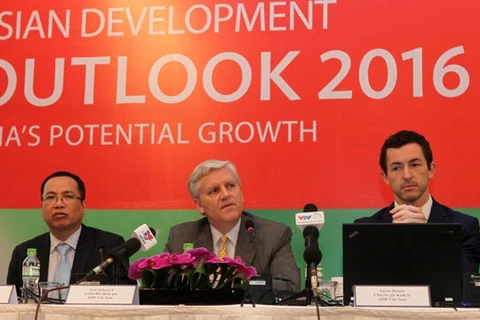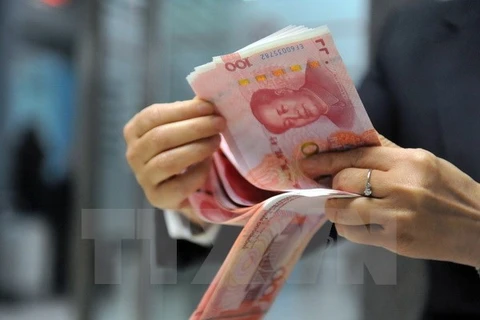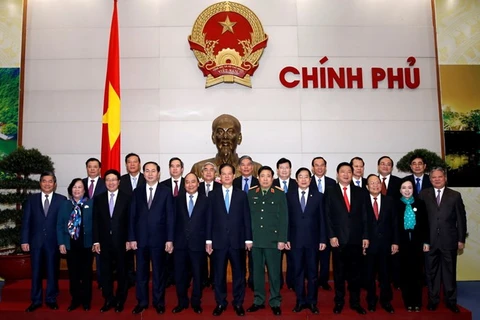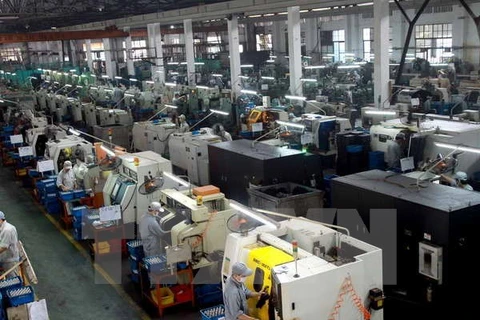Hanoi (VNA) – Vietnam still enjoys strong growth prospects among the large developing ASEAN economies though its economic growth is expected to moderate to 6.2 percent in 2016, the World Bank (WB) says.
According to the bank’s East Asia and Pacific Economic Update unveiled on April 11, the slowdown is driven by slower private consumption and investment growth. Inflation is projected to moderate due to subdued global conditions and low global energy and food prices.
Meanwhile, relatively slow progress on structural reforms poses risks to medium-term growth. Rising fiscal risks also have to be managed. Weaker external demand and heightened global financial volatility call for a continued focus on sound macroeconomic management to safeguard against possible shocks.
Fiscal consolidation, further exchange rate flexibility, and bolstering of foreign exchange reserves could all help reduce vulnerabilities, the economic update says.
On the other hand, Vietnam is strongly positioned to benefit from numerous free trade agreements, especially the Trans-Pacific Partnership, the WB notes.
The bank says Vietnam’s economy has weathered the recent global turbulence well, reflecting resilient domestic demand and the robust performance of its export-oriented manufacturing sector. After a slowdown in 2012 and 2013, growth recovered to 6 percent in 2014 and further accelerated to an estimated 6.7 percent in 2015.
For the developing East Asia and Pacific countries, the bank forecasts their growth will ease from 6.3 percent in 2016 to 6.2 percent during 2017 – 2018.
The economic update calls upon several countries’ governments to take action to enhance transparency and accountability. Efforts to reduce barriers to trade in the region should be redoubled, with a particular focus on non-tariff measures and regulatory barriers, including to trade in services.
The region must increase its readiness to benefit from the digital revolution, and to deal with the challenges it poses, particularly through a focus on developing the essential “analog complements” to digital technologies, the report says.-VNA

























